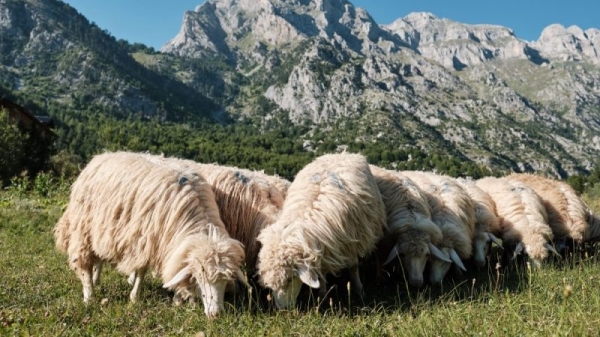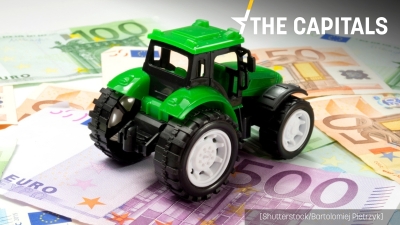Record number of Albanian farmers scramble for government subsidies

Over 22,000 Albanian farmers have applied for direct state subsidies in just two days, leading to a situation where the online system struggled to deal with the traffic and farmers descended on government buildings to file.
The Albanian Agriculture Ministry is offering farmers subsidies for free fuel, renovation of fishing vessel infrastructure, support for building agricultural markets, and in areas such as livestock, beekeeping, and organic farms.
With the online application system grinding to a half temporarily on Monday, farmers queued at government buildings from as early as five in the morning. Others said that the elderly or non-technologically savvy struggled with the online system.
“Now, we have been here since five in the morning. There are 70 and 80-year-old men waiting here. Now let’s see what happens; if we are not lied to, we will receive; if we are lied to, we will receive nothing. We went in there once, but we got out because we couldn’t stand,” said another citizen, describing the queues in Korce, one of the country’s main agricultural areas.
The main focus of this year’s funding is the livestock sector, with 60% of the €28.9 million allocated funds. Livestock farmers with a minimum of 10 cows with a value of up to €87 per head, sheep farmers with no less than 100 sheep or goats with a value of up to €10 per head, and beekeepers with a value of up to €8 a hive will be able to benefit under the scheme.
Organic farmers can receive almost €900 a year to support their work.
Support will also be given for seedling planting with a value of up to €1752 per hectare, per season, and 50% of the total value of the fiscal invoice for producers of grapes, fruit, olives, citrus, and vegetables.
But the number of applications has surprised the ministry with some 17,841 applying on the first day and more than 3000 on the second day.
Around 40% of applications were for free oil, a result of soaring prices following the war in Ukraine. Additionally, the total agricultural area required to benefit from the subsidy has been increased from 0.4 hectares to 1 hectare, meaning more will benefit.
Farming contributes to around 20% of Albania’s annual gross domestic product. But more than that, it provides essential sustenance for many who do not work outside the agricultural sector and rely on farming for food.
However, according to a 2022 report published by the United Nations Food and Agriculture Organisation, Albanian farmers receive some of the lowest subsidies in the region.
The FAO report shows Albanian farmers only receive €3 of direct support per hectare from the state, while €42 goes to institutions and entities that monitor the agricultural sector. This is the inverse of the situation in other countries where most funds go directly to the farmer.
In Kosovo, €69 per hectare goes to the farmer and €54 to the administration, while in Bosnia, €66 goes to the farmer and 60 to the administration.
On average, Western Balkan countries gave some €53 per hectare to their farmers, while in Albania, this figure was 18 times less at just €3.
With this level of funding, the report said that the state does not provide sufficient assistance to farmers to face market competition, prevent rural depopulation, or increase productivity. As such, the country should urgently increase direct funding and improve the functioning of institutions so that funds can be absorbed properly.
To meet EU criteria, Albania must allocate equivalent to one-third of what it expects in EU funding. Therefore, Albania must increase its allocation for agriculture by at least five-fold.
In 2021, some 41% of Albanians worked in the agricultural sector, but the majority did not receive any salary.
As of the middle of 2021, according to INSTAT, just 54,000 of the 540,000 agricultural workers paid social security, while the rest reported being self-employed without pay.
Albania is also a beneficiary of the EU IPARD III programme which will see some €112 million of EU funds destined for local agriculture between 2001 and 2027. The Albanian government will add another €34 million to the EU figure, bringing the total to €146 million.
(Alice Taylor | Exit.al)



